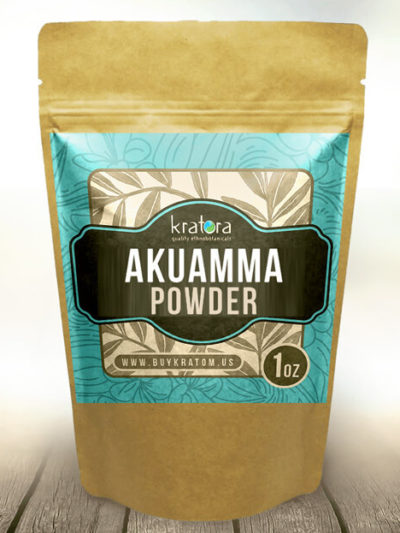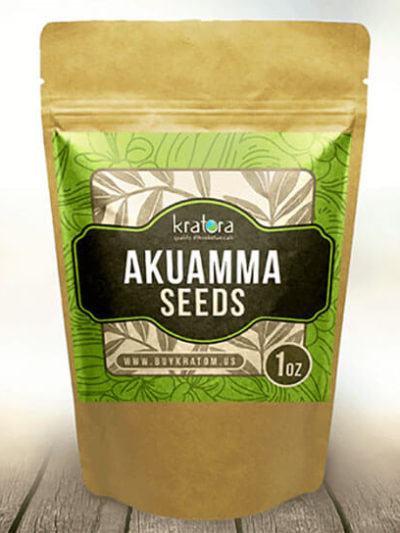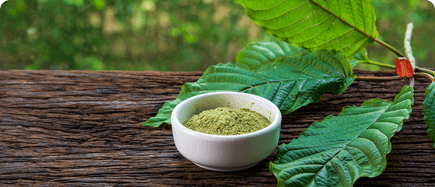As one of the world’s largest continents, Africa is home to some of the world’s most remarkable plants. Some of these botanicals have histories that span thousands of years and are deeply intertwined with the continent’s earliest populations.
Akuamma — or picralima nitida — is certainly one of the most timeless and fascinating African plants. Even today, centuries after its discovery, the plant remains somewhat shrouded in mystery.
Through study and analysis, various researchers have attempted to uncover Akuamma’s seeds effects and secrets, and although their efforts have produced many answers, they’ve also unearthed many more questions.
Picralima Nitida: Early History & Initial Uses
For those wondering what Akuamma is, it is a tree that grows natively throughout tropical Africa, including Benin, Nigeria, Ghana, and Uganda. Although the plant was first recorded in 1896, it’s likely that Akuamma’s history as an integral component of West African folk medicine spans hundreds, if not thousands of years. Its earliest applications include use as a treatment for malaria, diarrhea, and pain.
Eventually, as science caught up, African researchers developed an interest in exploring the therapeutic potential of picralima nitida. Soon enough, a Ghanaian hospital began manufacturing and selling the plant’s seeds as a powdered, capsule-based pain reliever. In this processed form, Akuamma became widely used, and the effect of Akuamma’s seeds sparked interest among researchers in Africa and abroad.
To produce Akuamma, farmers collect and dry the tree’s seeds before grinding them into a fine-grain powder. Within the tree’s seeds are multiple naturally-occurring compounds called “alkaloids.” These alkaloids — which include akuammidine, pseudo-akuammigine, pericine, akuammine, and others — are chiefly responsible for Akuamma seeds’ effects. The most abundantly available alkaloid present in picralima nitida, akuammine, is structurally similar to mitragynine, one of kratom’s primary alkaloids.
Akuamma as an Anti-Inflammatory
Akuamma’s history as a folk medicine helped draw attention to its antidiarrheal and antimalarial applications. However, recent research is now underscoring the plant’s effectiveness as an anti-inflammatory — an application of the plant that was previously unexplored.
In this study from 2002, researchers investigated the anti-inflammatory properties of Akuamma seeds by examining the plant’s efficacy at reducing swelling in rats. The authors found that not only was Akuamma seed extract effective at reducing swelling but that the pseudo-akuammigine alkaloid was responsible for the anti-swelling response.
Akuamma as an Analgesic
According to other research, the seeds of picralima nitida also possess notable pain-relieving properties. In one study, researchers found that Akuamma “produced significant analgesic activity” and increased the pain threshold of rats.
Other researchers have noted that pericine and akuammine — two of the alkaloids present in Akuamma seeds — appear to be responsible for the plant’s analgesic properties. However, Akuamma seeds’ analgesic effects appear to be limited in comparison to other plants.
In this Akuamma research study, the authors concluded that “psi-akuammigine was 3.5 and 1.6 times less potent than morphine and indomethacin, respectively.” Their findings suggest that while picralima nitida might be an effective pain reliever, its efficacy cannot rival that of highly-potent plant-based analgesics.
The Antimicrobial and Antibacterial Properties of Akuamma
Aside from its traditional uses as an anti-diarrheal and fever reducer, various human populations have utilized Akuamma to combat bacteria and microorganisms; however, researchers hadn’t examined the antibacterial and antimicrobial properties of Akuamma until relatively recently.
In this Akuamma research study, the authors examined the effects of Akuamma seed extracts on pathogenic bacteria in vitro. They found that Akuamma seed extracts made with ethanol and methanol were effective at killing some pathogenic bacteria. However, the picralima nitida extracts were ineffective against P. Aeruginosa and S. Typhi.
Another study by a separate team of researchers sought to explore the antimicrobial properties of Akuamma — namely, its seeds, roots, and leaves. They found that extracts of picralima nitida seeds “demonstrated broad-spectrum activity against all tested gram-negative bacilli.”
That said, the researchers also found that extracts made from Akuamma leaves and roots didn’t demonstrate the same antimicrobial effects as the plant’s seeds. As a result, it would seem that most of Akuamma’s benefits lie in its seeds rather than its other components.
-
Relaxing
Akuamma Powder
From $11.99 Shop Now This product has multiple variants. The options may be chosen on the product page Quick View -
Relaxing
Akuamma Whole Seeds
From $7.99 Shop Now This product has multiple variants. The options may be chosen on the product page Quick View
Risks & Challenges
Although picralima nitida seeds have many promising properties, researchers have also identified several risks associated with the plant’s usage. Due to these risks, it’s likely that Akuamma seeds’ effects aren’t suitable for all users.
For instance, one study published in 2019 found that Akuamma had various adverse effects on the offspring of pregnant rats. As a result, the authors of the study concluded that “the aqueous seed extract of P. nitida has teratogenic effects and should not be used in pregnant women.”
As a botanical, Akuamma is also susceptible to moisture loss which can adversely affect its potency. In this study, researchers observed that when picralima nitida seeds lost moisture, their phytochemicals and flavonoid content degraded. Based on their findings, it’s safe to say that Akuamma is best when it’s sourced fresh.
Legality
Despite Akuamma’s nature, the plant remains legal to grow, distribute, sell, and buy in the majority of the world. As of this writing, governmental and legislative interest in Akuamma are low, and regulations are non-existent in most countries. As a result, Akuamma seeds can be readily purchased online as a finely-ground powder or as whole seeds.
Order All-Natural Akuamma Seeds Online at Kratora
Picralima nitida may have a rich and complex past, but purchasing this fascinating botanical has never been easier.
Whether you’re an Akuamma enthusiast or a newcomer to the plant, we’re proud to provide our customers with high-quality Akuamma that is always:
- Organic and all-natural
- Freshly packaged
- Sourced from reliable, trusted suppliers
With fast shipping and a full 30-day refund guarantee, you can place your order in complete confidence. Shop with us today to receive same-day shipping on orders submitted before 3 PM EST Monday through Friday and 1 PM EST on Saturdays (excluding holidays).
Please note that none of the products sold on our website are intended to diagnose, treat, cure, or prevent any disease or medical condition.
Want to learn more about kratom quality and value? Start here:
Why Buying Cheap Kratom Can Be Dangerous





